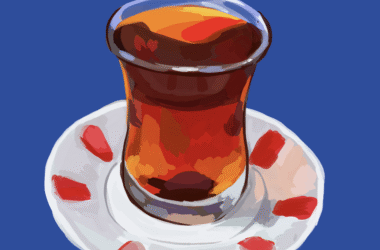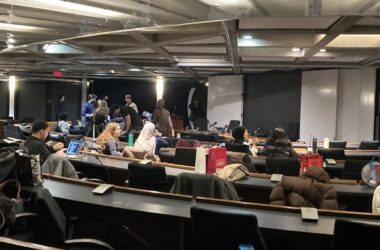While the McGill community remains geographically fragmented, the McGill Library’s alternate reality game Raising Spirits: A Timely Diversion invites students to converge virtually on campus sites and experience them anew. Featuring artifacts drawn from McGill’s library archives, the game resurrects marginalized figures from the university’s past and narrates their stories across space and time. The project seeks to give players a sense of shared identity rooted in this year’s online learning format. On March 18, the McGill Library released the third instalment of Raising Spirits, which highlights McGill student life in the 1950s.
Paul Davarsi, BA ‘95, educator and creative director of Raising Spirits, described the game’s objectives in a panel discussion on its creation.
“We approached it with a […] spirit of trying to bring students from around the world who would not be on campus […] and give them a sense of place,” Davarsi said.
To preserve the fun of discovery for new players, Nathalie Cooke, associate dean of McGill Library and the game’s producer, was hesitant to give spoilers. The games are designed to surprise players, revealing the histories of characters obscured from McGill’s past while taking students to campus spots such as Roddick Gates and various McGill libraries.
Raising Spirits is a collaborative project between archivists, graphic designers, librarians, and programmers that draws on McGill’s archives to create multimedia puzzles throughout its narratives. As players hunt for clues in digital space, they are given the experience of investigating library collections themselves.
The first installation of the game was released on Aug. 27 for Frosh activities, but it has since drawn interest from a wider audience beyond first-year students. Cooke expressed the team’s surprise at the game’s popularity in an interview with The McGill Tribune.
“Graduate students loved it,” Cooke said. “Grown-ups loved it. Journalists and teachers were curious. Other librarians tried it. People who have never played digital games before tried it.”
The upcoming installation will allow players to explore student life in the 1950s through a trivia game hosted by Marty the Martlet.
“We’ve got stories that people have never heard about, different kinds of students and graduates that people have never heard about, unusual professors from different generations and places,” Cooke said. “It’s going to be a real surprise for people who know the history of McGill as just William Osler, James McGill, and William Dawson.”
Aeron MacHattie, an archivist on the narrative design team, spoke to the game’s creators’ goal of spotlighting McGill’s marginalized histories.
“Because archival reflections reflect the people in power, often these collections are very white-centred,” MacHattie said in a panel discussion. “So other histories […] of Black, Indigenous, queer, or working-class people aren’t as visible,”
The third installation’s more recent scope grants living historical characters agency over the representation of their histories by allowing them to be collaborators themselves. McGill’s first Black Carnival queen Beryl Rapier––then Beryl Dickinson-Dash––for instance, is featured in the upcoming edition to describe campus experience in her time.
Raising Spirits is centred around the theme of disruptions: The first two installations featured Amy Redpath Roddick, a McGill benefactor whose family was the subject of an unsolved Canadian murder mystery in the early 20th century, and Maude Abbott, a medical librarian who was denied entry McGill into McGill’s medical school in 1899 because of her gender.
Hannah Deskin, a collaborator on the narrative design team, described the autonomy that the game provides players.
“We wanted to create a narrative that allowed students to feel like they were ridding the campus of a mysterious scourge or disruption,” Deskin said. “We hoped that putting the fate of the campus in their hands would allow them a sense of efficacy in a moment when many feel rather powerless.”
Raising Spirits itself records the present moment for the McGill community. For future players, the games will evidence current feelings of isolation and the need for some simple, light-hearted fun.







